Ed Zwick On Fighting The Urge To Push Harvey Weinstein Off Oscar Stage, Battling Matthew Broderick’s Meddling Mom On ‘Glory’ & Other Memoir Memories: Q&A
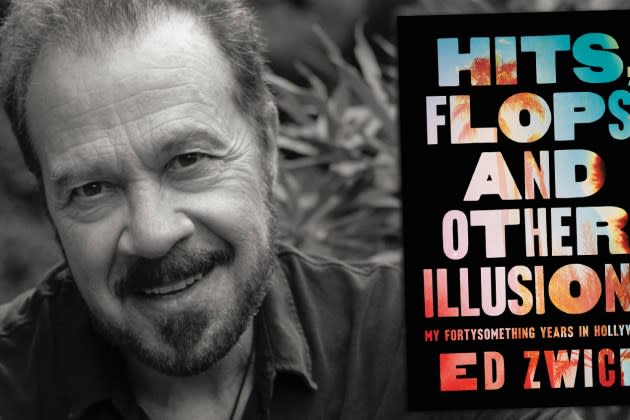
The closest comp to Ed Zwick’s new memoir Hits, Flops And Other Illusions: My Fortysomething Years in Hollywood is William Goldman’s Adventures in the Screen Trade, where he posited a definitive piece of advice on the elusive formula for hit making: “Nobody knows anything.” Although he didn’t create the “if you want to send a message, try Western Union” line that has many authors, Zwick spent a career trying to defy that adage, in directing, writing and producing a long list of great and meaningful films and TV series topped by the Oscar winning Shakespeare in Love and Traffic, to Glory, Blood Diamond, About Last Night, Defiance, The Last Samurai, The Siege, thirtysomething, My So Called Life and many others.
Comparing his book to Goldman sets a high bar. Like the scripter of Butch Cassidy and the Sundance Kid did, Zwick might fawn over great actors like Denzel Washington, Leonardo DiCaprio, Tom Cruise and others who had career highlight moments in his films, but he also doesn’t spare the rod on those who got in his way, or behaved badly in the high stress moments that come with moviemaking. That includes himself. He discusses the challenge of the care and feeding of big stars, and how complicated it can be like when he led Brad Pitt to a strong performances in Legends of the Fall, but not without clashing with a young future Oscar winner trying to harness his craft and prove he was much more than a pretty face. Zwick’s willingness to bare struggles like that makes his book a must read, whether one is an aspiring filmmaker looking to avoid pitfalls or how to handle situations, or movie fans who will revel in tasty backstories of films we all know. Here, he dishes some of the war stories.
More from Deadline
DEADLINE: Your approach to your memoir is all in the title, Hits, Flops, and Other Illusions. When you’re honest about the people involved in all the twists and turns that go into making as many great films and TV series as you have done, it’s not surprising you end up with a cracking good read. I have to start with Shakespeare in Love. Instead of the well-worn tale of how the film upset Saving Private Ryan to win Best Picture, you write about developing it to direct, and how you once had Julia Roberts and Daniel Day-Lewis as stars, and how that fell apart because she was a young superstar in love for the first time and her professional judgment was upended by … youth. When you directed another movie, Universal let Harvey Weinstein have the property, and he summarily cut you out. When you threaten to sue, he says, “I’ll kill your whole family, you little f*ck.” Later, he cries in apology to you. And then what happens?
ED ZWICK: Well, I find myself on the stage at the Oscars, anticipating some moment of gratitude, or even relief or some ironic statement about coming to this moment. And of course, what he does is bigfoot all of us, give me that hip check and steps forward. And what I do say in the book is that I was faced with an interesting moral choice. I could either commit an act of violence before a viewing an audience of a hundred million people or choose false modesty. I made the wrong choice.
DEADLINE: You wanted to shove him off the stage and into the orchestra pit. We know now that an act of violence at the Oscars gets you banished from the Academy for 10 years. Would it have been worth it?
ZWICK: So maybe I made the right choice. We pay such importance to those moments, in the moment, but these fade so quickly. What you’re left with is something that my friend David Friendly’s father, Fred Friendly, who was Edward R Murrow’s producer, used to say: Who will know? I’ll know. I feel some comfort in the fact that I could write a book, which is, as somebody once said, an opportunity to taste the same meal twice. And I’ve been able to really recall a lot of the pleasures along with the indignities.
DEADLINE: Like how you write that Harvey positioned it so your company logo appears on an image of someone stepping in sh*t?
ZWICK: Yep. The amazing thing is I was treated to the monstrosity that is Harvey, early on. Obviously he’s gotten his due in trials and in prison as well, where he ought to be. But I maintained he should have been put there long before, because his aggression and his unbelievable…the depredations that he brought upon writers and directors and everyone else that he encountered was so horrible, even back then. So yes, that’s one of the insignificant ones among his bill of particulars, I think.
DEADLINE: Your partner Marshall Herskovitz helped the PGA install a rule that you couldn’t just call yourself a producer and take a Best Picture trophy, you had to be vetted. How satisfying was that?
ZWICK: I had never looked at my work before I started to write this book, I wasn’t the kind of person that goes back, and has long retrospective thoughts. And when I did, it wasn’t the work itself, the things that worked, the things that didn’t work. What was so available to me were the relationships and these unbelievable intimacies and dust ups and love affairs and long conversations with all these wonderful people. And that’s what was available and that’s what I found, and that’s why I wrote the book. And it included some of these moments that are a little hard to swallow, but the lesson that I’m left with about a career is, it’s not a question of if you’re going to get knocked down. But rather, when, and what you do when you are knocked down, and how long does it take you to stand up? Look at any list of a director’s career over time, and it’s full of these peaks and valleys. I was blessed to have several people available to me to give a longer view when I was first starting out, these wonderful giants of the business who just took an interest and made themselves available to me. Paul Mazursky and Sydney Pollack and John Frankenheimer and these amazing guys who were generous. And so I was a little bit prepared for what awaited me.
DEADLINE: Also, when you contemplated pushing Weinstein off the stage into the orchestra pit, you didn’t know that while everyone else had been taking cuts, Harvey helped himself in to a first dollar gross position, did you?
ZWICK: Well, even long before that, when he tried to cut me out of everything, I hired Burt Fields, a lawyer I’d met in another circumstance once before, when he was on the other side. And he immediately created a circumstance where Harvey was going to have to be deposed, and that’s when he folded. That’s how you treat a bully. You punch him in the nose right away or else you pay the price. The truth is, it wasn’t until many years later when we did an accounting, that we discovered that he had given himself first dollar gross. And I’m not sure that he was ever held to account for that because he sold the company to Disney and then they sold it to somebody else. I’ve lost track of all of those kind of things. It’s just not my lane.
DEADLINE: Enough of your Shakespearean torture. You have injected so many sharp observations in this book. I want to reflect on one, after you made Blood Diamond with Leo DiCaprio and Djimon Hounsou. Warner Bros chief Alan Horn said he’d hang the poster in his office proudly, but he would never again make a movie like that. And he told you it cost $100 million to make $40 million in profit. He said, it’s more profitable to lose $75 million on one release and make $350 million on the next. I didn’t understand the math, but I got a 32 on my Trigonometry Regents.
ZWICK: Well, let me help. Maybe I could have explained it better. What Alan said to me, in depth was every slot has a potential value of X. In other words, they’re only given one Christmas slot or two, or one fall slot, competitive with everyone else. Therefore, the potential of that slot is to make several hundred million dollars with a big blockbuster. If they then only make 40, it doesn’t move the needle of the stock price. So they would rather be in that game of multiples where they literally will lose a hundred on one, and then on the other one, they’ll have the potential of a much higher multiple.
DEADLINE: Explain how that math relates to today. Streamers provide more places to shop a script like Blood Diamond, but a politically charged film is always going to be far less a priority than a good high concept premise.
ZWICK: Well, it’s implicit in your question, Mike, that grownup movies are not being made, which is to say grownup having to do with a certain amount of either political content or complexity. They’re not being made in the same numbers. They’re being made occasionally, but they seem to exist as tithes. We’ll do one movie like that amidst a portfolio of something very, very different, but also those movies are not being made in the same kind of scale as I had opportunity to make.
If I think about The Last Samurai, or The Siege, or Courage Under Fire, these are movies where the scale is also part of your palette. Those movies are not being made either. There are wonderful movies being made about interesting complex themes. They’re made independently. Some of them are being made for the streamers, but they don’t seem to have the same, what’s the word? They don’t seem to have the same traction in the culture, given the same kind of marketing support you need in that space to actually dig in. But there’s another reason for that. The movies themselves have been somewhat diminished in the cultural landscape, competing with games and YouTube and all of the other things that are now vying for the attention of entertainment.
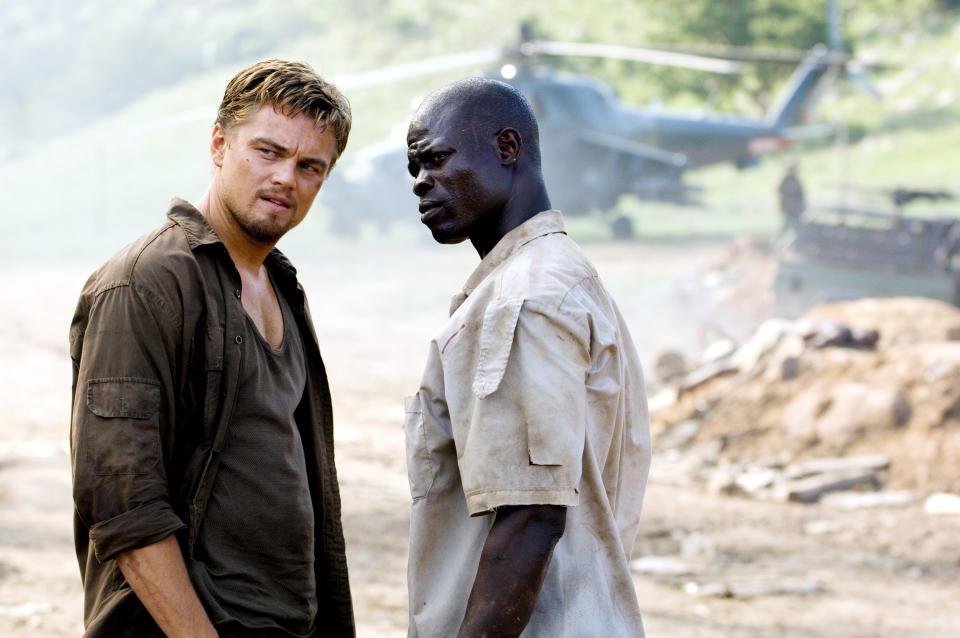
DEADLINE: About Blood Diamond, you wrote something that is gutting but true. You talk about Africa and the Civil War in Sierra Leone, and you write that historically when anything of value has been found in Africa, locals die in misery. Sons become child soldiers, and daughters sex slaves, when ivory, rubber, oil, gold and diamonds are found. The diamond maker De Beers bitched about your movie and wanted disclaimers about violent exploitation practices depicted in Blood Diamond, which Alan Horn refused to grant. You’ve made a bunch of movies that told compelling stories but also spotlighted injustice. What impact do these movies actually have on changing abhorrent things in the world?
ZWICK: You never can know. We do what we can with what we have. What I’d like to believe is that a paradigm shift takes place over time, and it only comes as a result of adding your voice to what becomes a rising chorus that eventually reaches a tipping point. I can point to certain examples. I can say that same-sex marriage obviously would not have happened in the United States had it not been given that set of images in the culture on television, in movies that had found its way into the living rooms of America. I know that the creation of the concept of blood diamonds and the Kimberley process has had an affect on people being willing to ask about the pedigree of their diamonds when they buy them. It certainly has not brought down the De Beers Corporation. I’d like to think that it’s brought about certain reforms in the way that they deal with certain Third World countries. But unfortunately, I see the same thing happening now in the Congo with cobalt and all the precious minerals that go into our cell phones and into our computers. So I’m afraid that that resource curse that I’m describing still exists.
DEADLINE: Alejandro González Iñárritu said he did not care for superhero movies, even though he won an Oscar making a satire of one. He said the closest thing people who fantasize about superheroes saving the world have in the real world is their governments. And they are often corrupt. Glory, and several other of your films put forth admirable heroic characters, without superpowers. How do you feel about this?
ZWICK: Hero is a very interesting word because we know that the heroes in our culture are unsung, and whether they’re doctors or lawyers or policemen, they exist in an unheralded way, but I do believe that there are heroes. They just tend to be more complex. I know that when we wrote Defiance that these were people who did remarkable things, and yet they themselves were flawed. I know that when we talked about Robert Gould Shaw in Glory, that this is a young callow man who was not necessarily prepared for the things that he did. In Pawn Sacrifice, was Bobby Fischer a hero holding up the flag of the United States even though he was batshit crazy? I guess I’m more interested in the reality of what that word means than I am in the blown-out people wearing odd leotards and things.
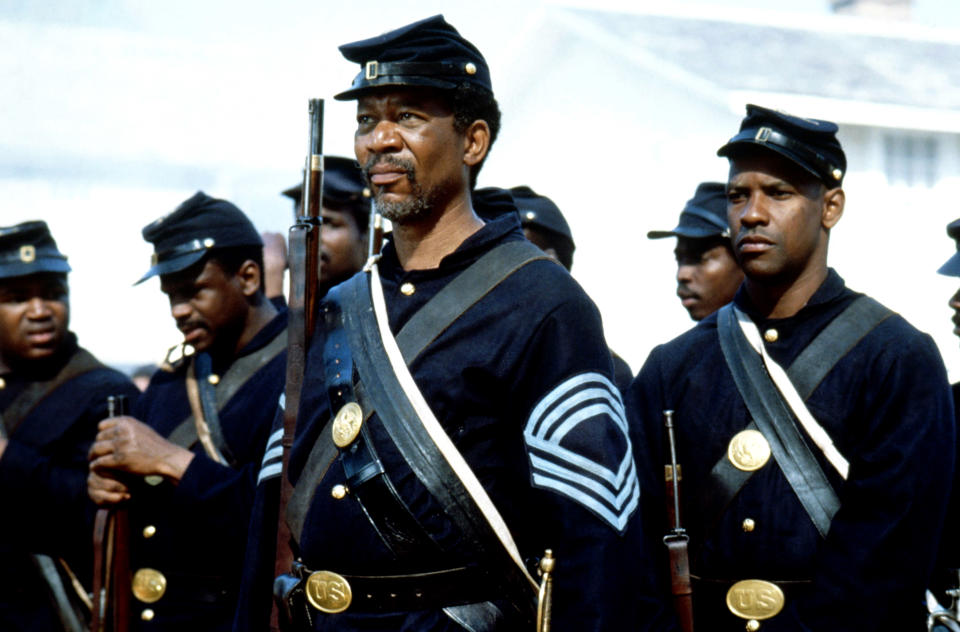
DEADLINE: Shaw was played by Matthew Broderick in Glory, and you write in great detail about the good and bad in that memorable film. The good included the performances by Denzel Washington, Andre Braugher in his very first film role, Morgan Freeman and Jihmi Kennedy. Explain what that was like to observe and how, when magic happens in front of you, what do you do as a young director who’s trying to put your stamp on things?
ZWICK: That’s a really good question because as a young director, your temptation is to overdetermine things. Control is something that somehow seems very important in that authority role. And then you encounter something that is so magnificent, so beyond your ability or understanding. You’re confronted with this moment, and it’s a teachable moment where you grow and you suddenly say, in giving up some control, in humbling yourself what you can get back is a different order of magnitude. And that’s what happened, because I saw these guys who were bringing not just their A game, but the representation that they felt for their history and their relatives. And their obligation to signify something there that I…was able to get something not for that movie, but for an entire career. There are times when the best thing you can do is fuck all nothing, to step back and allow something to happen. There’ll be plenty of time for you to impose yourself on a process, and you’re going to get the blame or the credit anyway. And so that was an amazing moment in my life.
DEADLINE: Denzel Washington’s single tear moment, face rimmed with rage and pride and humiliation as he is being whipped…it is one of the great moments in cinema and small wonder he won an Oscar for that portrayal. How did you help get that to happen? Do you motivate him? Do you leave him alone? Do you shoot it over and over again? And where are you after an onscreen scene like that?
ZWICK: I don’t think there’s ever been a single foot of film that I’ve shot with Denzel Washington that wasn’t usable. He is never somebody you say, oh God, how am I going to get this performance? The performance is there, and it’s always interesting and the more you get to know each other, it becomes even more unspoken. Where he knows somehow what I intended, because we know each other and done research together, or we’ve just been in each other’s presence long enough. But that particular moment was so full of feeling. We were just miles away from the caves where they had kept slaves in chains in Savannah Harbor. There were ghosts everywhere, and all of us were feeling it. And here you see a man in chains walked out, a black man to be whipped by a white man.
So it didn’t take a genius to know that this was going to be a special moment on film. Did I do the things that a director does? Did I arrange for the shot to be done in such a way as to arrive at that closeup at the moment that I felt right? Yes. Did I manipulate things to a certain degree, asking John Flynn to maybe take some of the control away from Denzel because he expected it to be this many whips, and it became more so that he was having an experience that was real as opposed to a fake? But he’s incapable of a fake experience. And the first time we shot that, it was great, but I felt there was the possibility of more. And the magnificence of Denzel is not just what he did, but that as he felt it happening, he knew what was being done.
He was smart enough as a director too, to see that this was some manipulation, some exploitation of him in this moment for the sake of a thing that he also wanted to accomplish. And he’s capable of somehow keeping in mind those two contradictory feelings, some legitimate pain from the whip and some awareness of the performance moment, the camera, the rage that he feels based on what he has learned over time in his own life, the humiliation of this moment of it happening in front of all these other people. All of those things come together. And what does he do? He gives over completely to the moment. And what happens, happens. And that’s a remarkable description of an actor in a moment that is unique, and for which he was utterly prepared and present.
DEADLINE: From what I’ve heard about Denzel, you say cut and he goes back to his trailer as though it was just another day on the job. And then you look at the dailies, and what are you left feeling at that moment?
ZWICK: There are certain moments like that, and I’ve had a few of them. For me, when you see something in dailies…and back then, you waited for Stevie Rosenblum has been my editor since film school, and he sits next to me, and we just look at each other. And whether you say it or you just feel it, you say, oh fuck, I have a movie.
DEADLINE: What other times have you felt that?
ZWICK: I remember up in those mountains with Leonardo and Djimon at that moment when he hands that stone to him at the end. And there’s another Denzel moment, when he goes and tells the kid’s parents that he’s been responsible for the kid’s death in Courage Under Fire. Oh, there’s Lev Schreiber beginning to be Boris Spassky and doing an entire scene in Russian where the other Russian actors are convinced that he’s Russian. And seeing him play chess and tell us the entire story silently as if I’m making a silent movie with John Barrymore. There have been a lot of those moments when you realize you’re in the presence of something truly, truly fine and truly genius. I could go on and on, and that’s actually one of the reasons I wrote the book because along with all these appalling moments, there are these moments that absolutely compensate for it.
DEADLINE: In an example of the latter, Matthew Broderick made you feel insecure in the way he tried to undermine you, through orders issued by his agent Mike Ovitz. First you learn that behind your back, he tried to get Bo Goldman to rewrite your script. You find out when Goldman calls to tell you, and he gracefully turns it down. Then they insist that Broderick’s playwright mother Patsy, who compared the writing of your script to “a limp penis,” fly to set each week at the production’s expense, to script doctor. You knew her because one of your first TV jobs was on the series Family, which starred Matthew’s dad, James Broderick. What the hell happened there, and what did you learn?
ZWICK: I try to write fairly about Matthew at that moment. He was 24. He had gone through a very difficult time with a car accident not long before. As often happens to young actors, they’re surrounded by people who whisper, and whether that’s agents, managers, hair and makeup, or trainers, they are susceptible. I’m sure that they were saying to Matthew, what are you doing with this guy? I was not much older than him, and what had I done? I’d done a movie about kids in Chicago and sex in About Last Night. I’d done a talky television show about whiny 30 year olds. You should be working with Sydney Pollack or whoever is hot at the moment. I think he was anxious, and I think his mother and others decided to step up for him and protect him.
The only thing for which I blame him, but not a lot, is that he was passive and he allowed that to happen. He didn’t do anything that was malfeasant. He was malfeasant. And that’s often the way of movie stars. They let other people do their dirty work for them. And in this case, I didn’t want to damn him because the work he does in the movie is brilliant. But I was determined when I wrote this book that I was going to be authentic, that I was going to tell the truths that are really beautiful about people that I respect and have come to love and to also show a little bit of dirty laundry.
DEADLINE: His agent, Mike Ovitz, was a fearsome figure back then. And when he tells you, “Matthew saw the film, and he wants to do his own cut.” What are you feeling inside when you say no, and what it might cost you in your career?
ZWICK: When you’re that deep into a movie? The stakes feel so personal. I had shown that movie to people by then, and I’d seen how it played. I knew what I had, and in some way probably felt that my career depended much more on that movie and its perception than it did on anything that Mike Ovitz could ever do to me. Maybe that’s a strategic calculation. And the truth was that after that conversation, Mike Ovitz went back about his life and did things in business with me for many years thereafter. It was just a day’s business for him, protecting a client. For me, it was my entire life. So it was no choice.
DEADLINE: If you’re going to fail, let it be on your terms?
ZWICK: Exactly. It may be shit, but it’s my shit.
DEADLINE: You developed Traffic with Steve Gaghan with the intention of directing it, and handed it off to Steven Soderbergh who knocked it out of the park. I read the original script, and it ended with the daughter of the main character played by Michael Douglas, climbing out the window late at night to find drugs. Meaning, this ugly cycle the film put us through was not over. The ending we saw was more hopeful. Why did you guys decide to go that way?
ZWICK: My position as a producer was to try to be the ideal producer that I would’ve wanted, which is to say I fought very hard and I was able to get more money from Barry Diller for the budget of the movie. And I was able to sit there and sit in the screenings and give Steve my ideas. But at the end of the day, every decision about that was going to be his, so I just can’t speak for him. Wonderful film.
DEADLINE: I think it was the right creative choice Soderbergh made. In the course of your adventures, you write about surviving non-Hodgkin’s lymphoma, and an African tick bite that left you hallucinating and almost killed you. You said you always ingratiated yourself with cast like a mensch, but you believe you really are Ahab in a baseball hat. And when your daughter at school was asked what you do, she said you yell at people all day. Who really is Ed Zwick and can one be a nice guy and a great filmmaker?
ZWICK: I’d like to think that the majority of the time, I am in fact nice. It’s just that we are also passionate and so self-absorbed in those moments that you’re capable of behaviors that you didn’t think possible in yourself. At a certain point, you just do what needs to be done. And whether that’s being a confidante or whether it’s being seductive or whether it’s being confrontational or whether it’s being a passive or whatever it is, it’s about being present in that moment and feeling what you feel and honestly trying to connect in a way that you will get the thing that you want because it only has to happen once and be in focus.
DEADLINE: You talked about teachable moments, like when you were complaining to Tom Cruise about The Last Samurai budget, about being behind schedule and in trouble with the studio. He shrugged and said, huh, and walked away. And your partner says to you, no negativity. You write that you were trying to be, as you call it, a good boy to the studio. What did you learn about the importance of not deflating your crew and cast by showing your insecurities to these people who are killing themselves to realize your vision?
ZWICK: That they don’t care about your anxieties. They don’t want to know about those things. They want an authority figure to represent them and to be leading that charge. I think what Tom was actually doing was giving me a gift because he’d been there before a lot many more times than I had been, when the shit is raining down and people are threatening to do this and that about the budget. And he knew that it was going to be fine, and that was his gracious way of telling me, just surf with it. In fact, no one said a word about that with the problem we were having and the overage because they were in for making the movie, they were committed and because he has the most ridiculously supreme self-confidence.
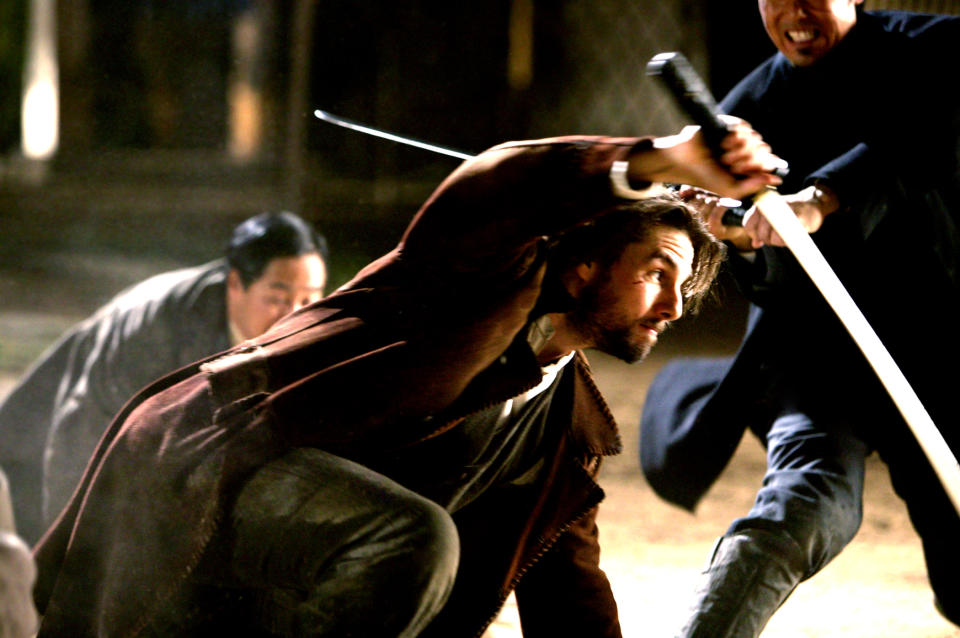
DEADLINE: Beyond confidence, what do you think is his superpower, that lets him hang off skyscrapers and the sides of jets, when most men his age like me get off the couch after a long sit and go, wow my hip hurts, do I need a new one?
ZWICK: I’ve actually thought about this question, and I got nothing. I’m not even sure it has to do with superpower or religion or upbringing. I actually think it has to do with joy. I think that he is so capable of experiencing this exhilarating, this unbelievable upsurge of joy, that it’s like an endorphin rush, that it’s like it just totally can give him this energy to rush forward at things and to do them. And it’s infectious, to the other actors, to the crew, to the director he is working with to the studio, getting them to come on board to do these nutty things.
DEADLINE: You write about the big stars in your films, and there’s Leo and there’s Denzel, Liev, Daniel Craig, Tom Cruise, Brad Pitt and Matt Damon. I remember Jamie Foxx once telling me that after working with Cruise and Will Smith, he understood the superstar. He said, you have to accept they’re always the biggest alpha males in the room and they will find a way to beat you at everything because they are the most competitive people ever. Talk a little bit about those guys and what they have in common and maybe how some of them veer from that.
ZWICK: They’re all actually very different to some degree. The one quality that I could point to, how profane can I be here, Mike? If you think of the great stars that you loved, whether that was Steve McQueen or Paul Newman, they share something with these guys here, which is they just don’t give a fuck. There’s a quality of saying, you know what? This is what it’s going to be and this is how I’m going to be and this is who I am, and I’m not going to be trying for or wanting your approval. I’m not going to want to please, and I’m going to just own this moment, and myself. Not every great actor is that way, but the ones that you’re describing have that. And one other thing, and I use this phrase, I think it was somebody else’s phrase that I’m sure I’ve stolen. It’s about having a stomach brain. What that means is they may not have the same language that I have, they may not have studied as hard in school for that kind of intellectual approach. But what they have is an intuition and a feeling that can’t be taught and can’t be learned. That drives them, and then that prepares them. Some of them, I think about Russell Crowe and Denzel, they each have a certain amount of rage in them that they can access easily. That’s there. I think about Tom Cruise and Matt Damon, and they have an extraordinary amount of joy that’s in them that they can touch. There’s just these things that are available. But there’s one other thing which is, and it, your whole life I’m sure has been around many more of these guys even than I have. What is that charisma? How do you describe the fact that like a car, a sports car on a day when you see the sun, how they shimmer, almost like a mirage. There’s some force field. Then you want to be warmed by that. How do you describe that?
DEADLINE: That’s true, and the camera doesn’t love everybody. There are many men who are handsome and women who are gorgeous, but they are flat onscreen. Others are not perfect, but they just pop. How do you explain that?
ZWICK: That’s the eternal question you’re asking. But I think it was my wife, or was it [Legends of the Fall cinematographer] John Toll who talked about movie skin and said that there are some people who let the light in and that it can almost penetrate that skin. But the other thing obviously, is that the eyes reveal an inner life and that inner life is a thing that whether that’s Uta Hagen or Stella Adler or Lee Strasberg…they talk about that inner process, but that inner process has to be visible. You can’t choose to make it visible. It either is visible or it isn’t. But when we see it, we just lean in because we’re just so taken by it.
DEADLINE: When I interviewed Martin Scorsese for Killers of the Flower Moon, he said his longtime editor Thelma Schoonmaker will call him to the machine and show him something Leonardo DiCaprio did that he was unaware of. “Look at his eyes, look at what he just did, you have to use that.” It turns them both into kids on Christmas morning.
ZWICK: And it could be eight frames, just this thing and also this thing that happened for the first time. And that’s why I love film so much. It wasn’t something that an actor prepared. It wasn’t something you knew was going to happen, or Marty thought he saw on this, and then he looks at it. He goes, what is that?
DEADLINE: I’m a movie guy, but I gotta ask something about your TV exploits. That medium, it’s always easier to hit the zeitgeist. You write that you almost felt a little guilty about scoring a hit with thirtysomething, basing it on what was happening in yours and your friend’s and coworkers’ yuppie angst-ridden lives. How does that show play back for you?
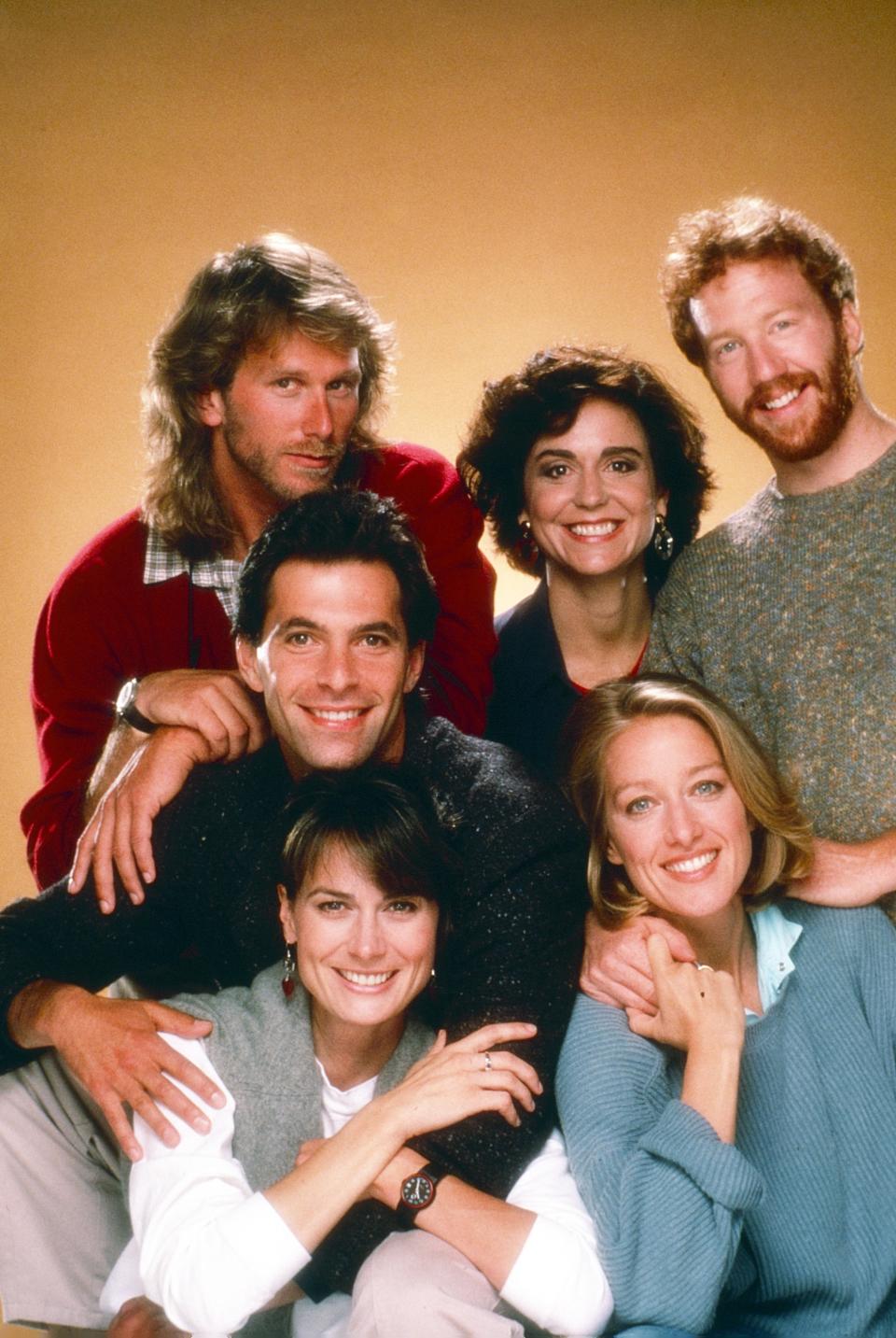
ZWICK: I am a little embarrassed by the wardrobe, but I actually find that the moments there have held up for me. I know that because I have a 36-year-old son and a 30-year-old daughter, and I watch them going through things which are not the same things we went through, but they are very analogous. The world is very different and the things that they’re addressing that face them, whether they’re economic or whether they’re cultural, are different. And yet those rites of passage, having children, losing friendships, dealing with your aging parents, your dreams and trying to confront the fact that maybe they’re confronting a downward mobility right now that their parents didn’t, any number of things are familiar to me. So we were onto a thing, which I think is cyclical, and we weren’t the first ones to whom it had happened. I remember my parents looking at us thinking, yeah, well, so what? You’re going through this. Only, we made a television show about it.
DEADLINE: The creators of Friends apologized for not having meaningful recurring Black characters. It wasn’t the priority it is today. How do you feel about that when you look back?
ZWICK: I mean, look, we were trying to be honest about our lives, and I am a white man married to a white woman. My partner is white, and this was about people who were in relationships and the other person is someone’s cousin from the same background, and their best friend. And did that make it all white? Absolutely. That was the truth. But I do want to say literally while I was making 30 something, I was also making Glory. So it wasn’t a racial decision. I think it was just holding up a mirror to a culture as it existed at the time.
DEADLINE: The way you wrote about making Defiance, it’s clear this was an awakening for you as a Jewish man about what your roots meant and what happened in Europe and what happened when this group just basically fought back and would not go to their deaths at Nazi hands without a fight. What did you take away from that? What happened after the October 7 invasion of Israel has been terrible, but is also has showed you don’t have to scratch far beneath the surface to find antisemitism. How does that movie play back for you?
ZWICK: Every now and then in a career, you have gained a certain amount of capital to want to do a thing that you want to do that maybe is less available, less interesting to a financier. That’s where I was having made Blood Diamond. I wanted to make this movie about my grandfather, about people that I knew, these tough Jews and about antisemitism and the war. I did want to talk about a different kind of heroism. These were not obvious heroes. And the thoughts that I’ve had since then are that the dialectic that movie describes between two brothers, really the leads, one of whom wants to enact vengeance on those who have done this to whom him. And the other is more measured, wanting to think about saving people and saving their culture.
There’s a contemporary metaphor to that right now in the world, in the response to what the attack by Hamas was. Is it the obligation to take all the vengeance you have, or is the obligation to try to find a way to preserve the society, to preserve some kind of status quo? So it’s interesting how you make a movie 15 years ago or more, and suddenly you find another relevance for it this much later. Same was true of The Siege. We made the movie before the 9/11 attack, and yet it became a different movie after that happened.
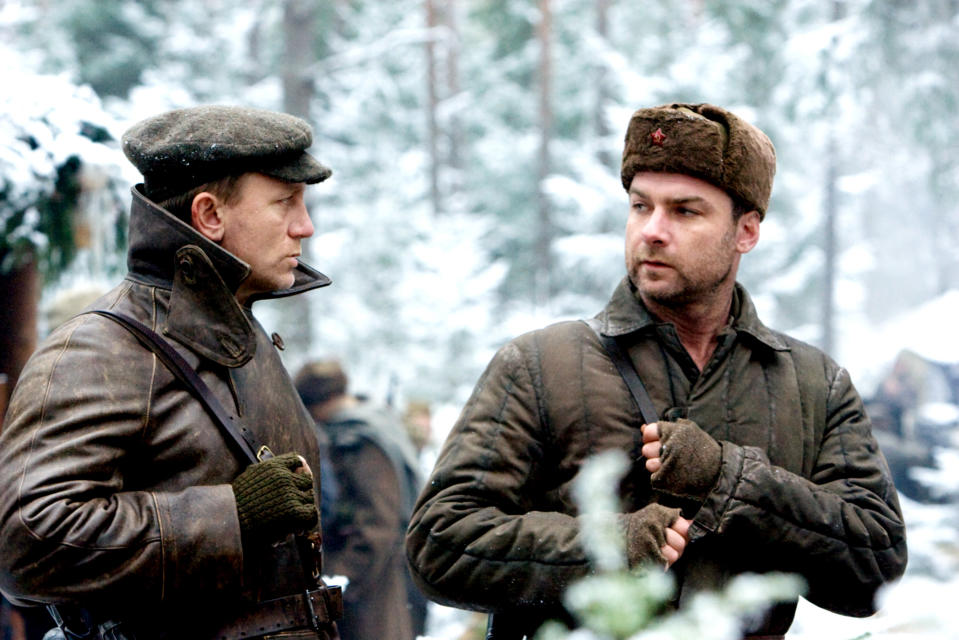
DEADLINE: Two more for you. Sure. You mention some pictures that you always wanted to make. There was a Stephen King novel with JJ Abrams, The Mayor of Mayor Castro Street with Tony Kushner, the Siege of Khe Sahn with Bill Broyles, a noir with Odenkirk. Is there a holy grail project that you must make before hang it up?
ZWICK: Every project is the Holy Grail while you are trying to make it, and was it Wayne Gretzky or Michael Jordan who said you never make a shot you don’t take? The great baseball players, guys who are in the Hall of Fame, they hit for a lifetime average of .340 or .350. Meaning you struck out, popped out, grounded out, or fly out seven out of 10 times. And the key to being a great baseball player is the ability to forget the last at bat and go up there and do it again. And that’s what you deal with, these things that you love. You lose sometimes and you just have to keep driving on.
Yeah, there are a couple things that I’m working on. There’s a very interesting thing that we’re hoping to do that’s very political, and then there’s something that we have written that’s an original that we’re going to now try to put together with a star.
DEADLINE: Last one: you met Marshall Herskovitz when you guys were rubbing nickels together to eat. Why have you endured so long that we could call you an old married couple?
ZWICK: Mike, you’d be a better historian for this, but it’s not just that we’re probably the longest running act in Hollywood now, but we may have been the longest of all time. It’s getting close to 50 years and it’s meant everything. We have been best friends as much as we have been collaborators from a very early moment. I found his willingness to watch my back as I was willing to watch his, and I was able to learn from him things that I needed to learn. And I don’t just mean things about writing and making movies, I mean things about life, about having children, about marriage, about being a boss, about being a good man. There are things that he has meant to me as a friend that I can’t even describe. Mostly it’s having that person that you who can tell you what he really feel, in a town where people are loath to tell you the truth. And at the same time, laugh when it’s all going down, when it’s not going, someone who can find the absurdity and keep you buoyant and with whom you can share the darkest humor about it. It’s not been having a partner or a collaborator. It’s been like having a brother.
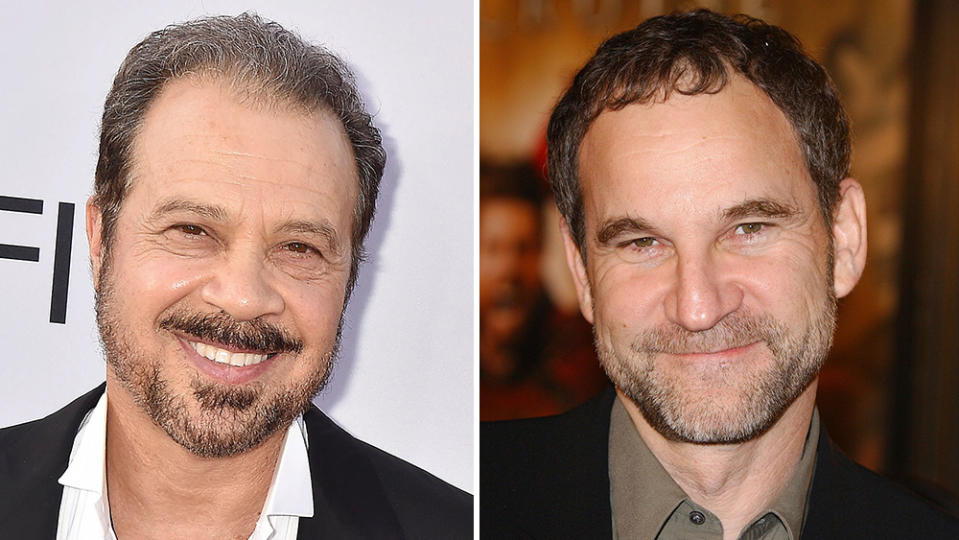
DEADLINE: The only other partnership I can put up against yours would be the Imagine duo or Ron Howard and Brian Grazer…
ZWICK: I think they began a year or two after us. I remember, because I met Brian when I went to Tristar, and I don’t think he and Ron had yet partnered up. I think we’ve got ’em by a year or two. So let’s just see who lasts.
Best of Deadline
Hollywood & Media Deaths In 2024: Photo Gallery & Obituaries
2024 Premiere Dates For New & Returning Series On Broadcast, Cable & Streaming
'The White Lotus' Season 3: Everything We Know About The Cast, Premiere Date & More
Sign up for Deadline's Newsletter. For the latest news, follow us on Facebook, Twitter, and Instagram.


